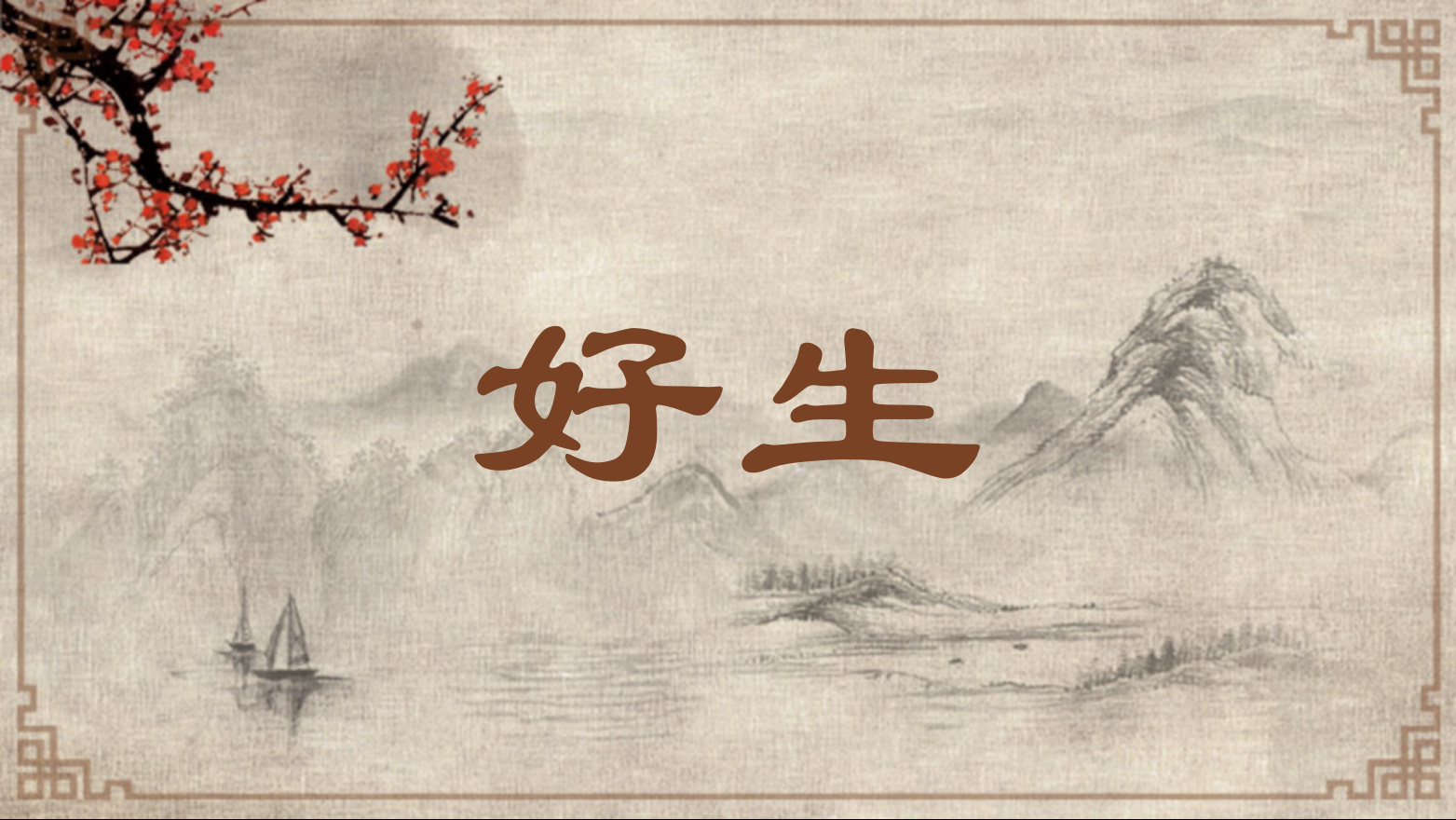好生 Cherishing Life

爱惜生命,爱护百姓。中国古人认为,使万物生生不息,是天地的美德;喜爱生存,厌恶死亡,是人之常情。因此,执政者对百姓的生命要多加爱惜,如:不轻易动用极刑,不轻易发动战争,为百姓兴利除害,使百姓安居乐业,等等。“好生之德”是执政者应该具有的美德,也是执政者应该坚守的原则。这一理念与“爱民”“爱人为大”相通,但更进一层,它为治国理政提供了生命哲学基础,它也是人们力行“恕”道、宽以待人的基础理念,中医的人文理论也常以此为基点。
This term means to cherish life and people. The ancient Chinese believed that the beauty of the natural world lies in its enabling all living creatures to perpetuate themselves, and the universal sentiment of human beings is to cherish life and abhor death. Therefore, those who govern must make special efforts to cherish people's lives. For example, they must not readily resort to the death penalty or start wars; they should eliminate things which harm the people and enable people to lead settled lives. The "virtue of cherishing life" is one which those who govern ought to have, and it is also a principle which they should strictly abide by. This concept is consistent with the ideas of "cherishing the people" and that "the greatest good is to cherish others," but it goes a step further. It offers a philosophy of life as a foundation for governance; it is the basic concept explaining why people should be empathetic and accommodating to others; it is also often cited as the starting point for the humanist theories of Chinese medicine.
引例 Citations:
◎天地之大德曰生。(《周易·系辞下》)
天地的最大德行是使万物生生不息。
The greatest good in the world is to enable all living things to perpetuate themselves. (The Book of Changes)
◎与其杀不辜,宁失不经。好生之德,洽于民心,兹用不犯于有司。(《尚书·大禹谟》)
与其误杀无罪的人,宁可放过不守常法的人。这种爱惜生命的美德,可以使民心和洽,因此民众就不会触犯刑律了。
It is better to spare an unruly person than to kill an innocent one. This virtue of cherishing life will set the people's hearts at ease; hence they will no longer break the law. (The Book of History)
◎臣闻天地之于万物也好生,帝王之于万人也慈爱。(《后汉书·寇恂传附曾孙荣》)
我听说天地对于万物的盛德是好生,帝王对于万民的盛德是慈爱。
I hear that heaven and earth display goodness to all living things by cherishing life, and kings display goodness to all people through their benevolence. (History of the Later Han Dynasty)
推荐:教育部 国家语委
供稿:北京外国语大学 外语教学与研究出版社
责任编辑:钱耐安





